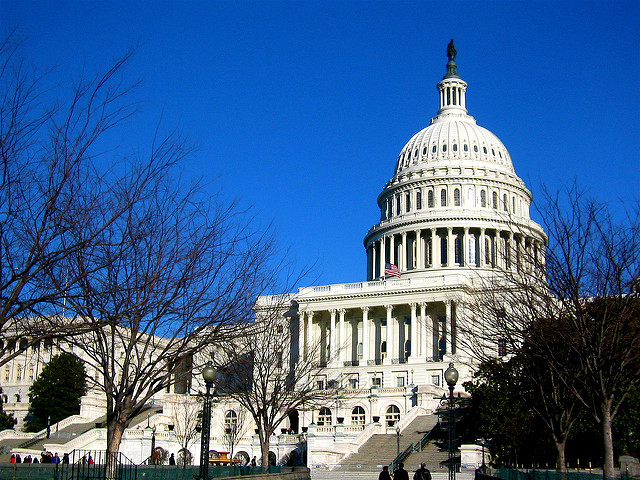
The Senate this week will consider legislation to reauthorize the Federal Aviation Administration (FAA) through 2017. While lawmakers were correct to leave renewable energy extenders out of the Senate version of the FAA bill, the two-year reauthorization still leaves much to be desired in the way of reform.
The FAA bill currently before the Senate maintains taxes on airline passengers as well as inefficiently administered federal funding for airports. The bill authorizes over $33 billion in funding for FAA functions during 2016 and 2017.
As part of this authorization, Airport Improvement Program (AIP) grants would see a 12 percent increase from $3.35 billion in 2016 to $3.75 billion in 2017. The Congressional Budget Office (CBO) projects this will increase AIP outlays by $3.4 billion through 2026, subject to yearly appropriations. As Americans for Tax Reform has repeatedly pointed out, airport funding has hit historic levels in recent years and such spending is unjustified.
The Senate FAA bill also avoids reforming regulatory burdens, and instead increases the federal governments reach into the aviation industry. For instance, the bill contains a new “baggage refund mandate” that CBO projects will cost airlines $10 million annually, the cost of which will likely be passed onto consumers in the form of higher fees.
The bill also is riddled with a number of regulatory mandates that not only drive up the costs for the aviation industry, but will inevitably increase the costs for traveling consumers.
A new mandate contained in the bill requires new flight data recorders for commercial aircraft that will have little to no impact on consumer safety but will cost and estimated $700 million. There is also a new regulation mandating limits on flight attendant working hours and rest periods as well as a required study on airline seats. Again regulations that will have little impact on safety but increase costs for consumers.
The growing drone industry also receives increased regulations under the bill, as one section requires all models of unmanned air systems (UAS) flown in the U.S. airspace receive FAA approval, thereby limiting recreational drone use. Additionally, recreational drone enthusiasts with drones weighing more than 4.4 pounds would have to pass a federal test on aeronautical knowledge.
It is clear that Senate lawmakers took into account taxpayers and the traveling public when they rejected efforts to extend renewable tax credits as part of the FAA bill. However, the bill still does little in the way of reforming federal spending and regulations, both of which increase costs for the traveling public and American taxpayers.
Photo credit: Elliott P.

